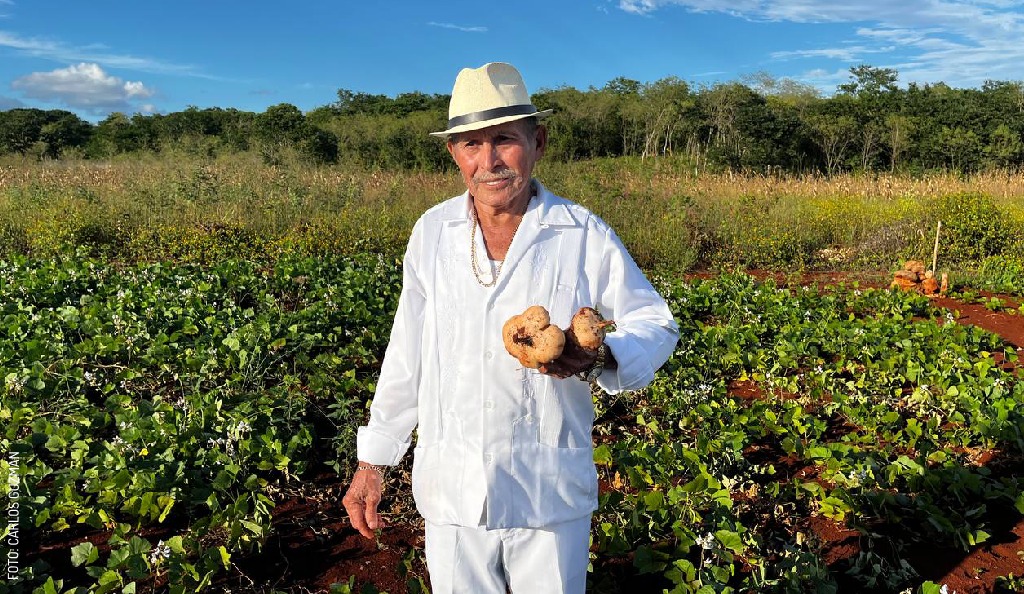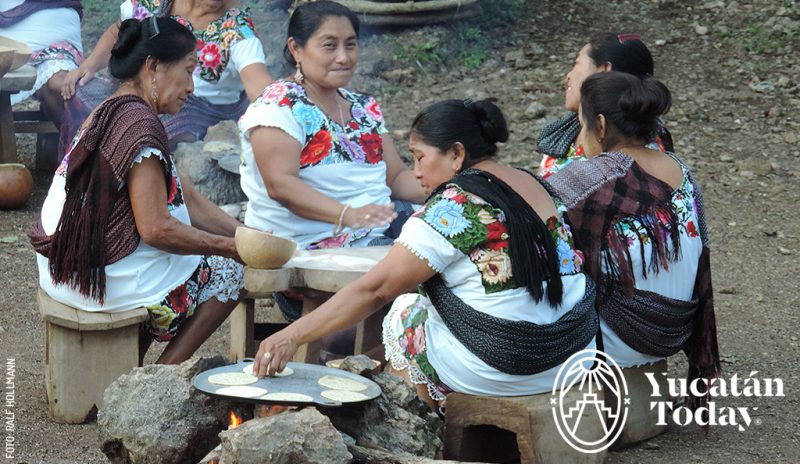
Popular Yucatecan Beliefs, my Chichí's Advice to Good Health
In Yucatán, the most common and affectionate way to call our grandmothers is “chichí,” pronounced chee-CHEE. This word, specific to Yucatecan Spanish, comes from the Maya word for “grandmother,” which is chiich.
.webp) I have many memories of my Chichí from when I was little. She was always attentive, above all, to make sure I didn't get sick, and for this, she advised against exposing myself to the “mal aire” (bad air). If I ever got sick, one thing was certain: she would attribute it to me having opened the refrigerator while sweaty or having been "beaten by the jatzajá." These ideas might not resonate with people who aren't from Yucatán, but they are two concepts deeply rooted in the culture of Yucatán, and their origins lie in the Maya worldview.
I have many memories of my Chichí from when I was little. She was always attentive, above all, to make sure I didn't get sick, and for this, she advised against exposing myself to the “mal aire” (bad air). If I ever got sick, one thing was certain: she would attribute it to me having opened the refrigerator while sweaty or having been "beaten by the jatzajá." These ideas might not resonate with people who aren't from Yucatán, but they are two concepts deeply rooted in the culture of Yucatán, and their origins lie in the Maya worldview.
The Maya worldview of wind and the jatzajá
For the Maya, the idea of wind or air was, and is, very different from how it is considered in other cultures. Beyond being a simple meteorological event, wind can be attributed both good and malignant characteristics, depending on the direction it comes from, the time of day it appears, and other conditions.
For example, the famous “jatzajá” is the heavy, humid wind that precedes the rain that Yucatecos flee from; and even if the temperature is 40 degrees Celsius (104°F), we will look for something to cover ourselves with so it doesn't "hit" us.
 Another particularly harmful wind is the one that arrives when the late afternoon is bright yellow. This is called tarde amarilla (yellow afternoon), viento amarillo (yellow wind) or "x’kalenkai". The existence of this and other winds and their traditional association with illness is so well documented that Robert Redfield, in his book “The Folk Culture of Yucatán” (1941), dedicates an entire chapter to its explanation.
Another particularly harmful wind is the one that arrives when the late afternoon is bright yellow. This is called tarde amarilla (yellow afternoon), viento amarillo (yellow wind) or "x’kalenkai". The existence of this and other winds and their traditional association with illness is so well documented that Robert Redfield, in his book “The Folk Culture of Yucatán” (1941), dedicates an entire chapter to its explanation.
Babies and children are especially vulnerable to these bad winds and should not go outside when they appear. Measures are even taken, such as closing windows and covering slits in houses, to prevent this air from entering.
The balance between hot and cold in Yucatán
In Yucatán, it is also customary not to mix hot and cold activities, as doing so is also associated with sickness. Thus, people avoid opening the fridge after doing activities that make them sweat. Let's be honest, at certain times of the year, simply existing makes you hot, so cold water is suspended until further notice. Combining these cold and hot activities is frowned upon and will definitely make you sick.
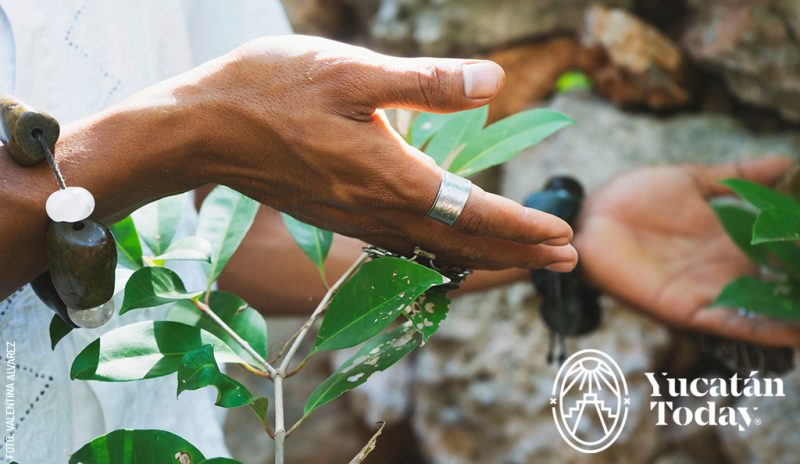 A person with “síisk’ab” is one who has cold hands, and in Yucatán, it is believed they should not and cannot cook, as their broths and stews will spoil or simply won't cook. Similarly, people with síisk’ab are not considered suitable for raising domestic animals or tending to plants.
A person with “síisk’ab” is one who has cold hands, and in Yucatán, it is believed they should not and cannot cook, as their broths and stews will spoil or simply won't cook. Similarly, people with síisk’ab are not considered suitable for raising domestic animals or tending to plants.
Traditionally, both foods and herbal remedies were also divided into hot and cold. Foods classified as hot were usually associated with restorative and healing properties (for example, broth), while cold foods could potentially be harmful and detrimental. Food was used to balance these temperatures, so a person with a cold would receive hot foods, while a person with a fever would receive cold foods.
Perhaps you don't have a chichí of your own to teach you our customs and look after you, but the truth is that these are such an integral part of Yucatecan culture that many Yucatecos know and faithfully follow them. If you aren't from here, the next time you find yourself speaking with a Yucateco, ask them what they know about the jatzajá, or about any other of our customs—they surely will have a lot to tell you. And if you are Yucateco, tell us, what other beliefs did your chichí instill in you?
Photography by Valentina Álvarez and Ralf Hollmann for use in Yucatán Today.
First published in Yucatán Today print and digital magazine no. 376, in April 2019.
Updated and republished in Yucatán Today print and digital magazine no. 458, in February 2026.
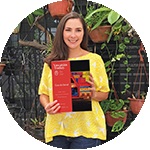
Author: Maggie Rosado
Maggie is passionate about tourism, writing and languages and has a master's degree in Translation Skills.
Receive the latest articles and much more from the best of Yucatán in your email!
Related articles
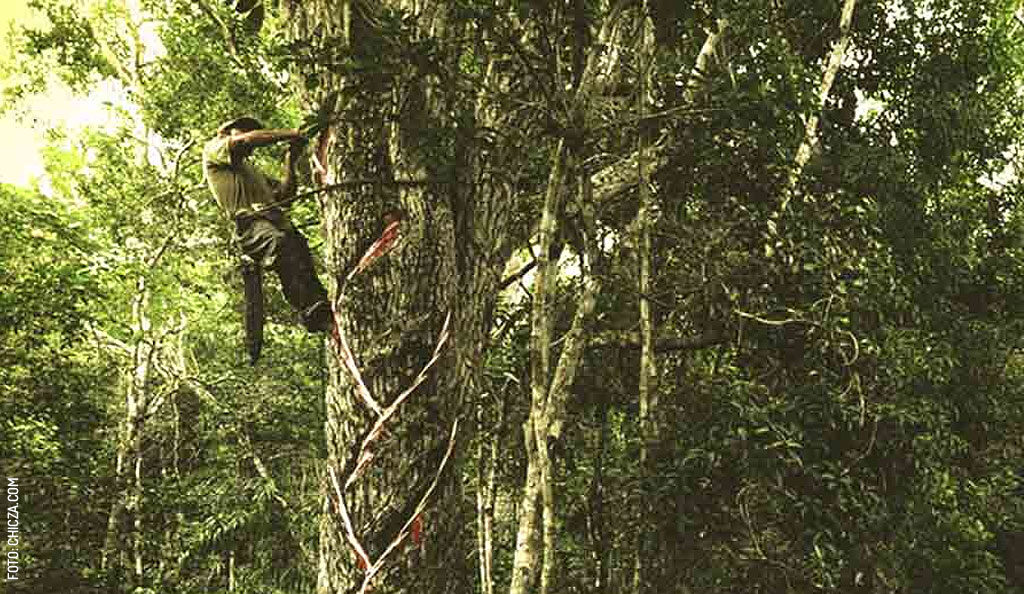
The Fascinating History of Chewing Gum, From Maya Chicle to Today
You've tried all kinds of chewing gum, with various flavors, colors, and smells. But, did you know that chewing gum was born in Yucatán and invented...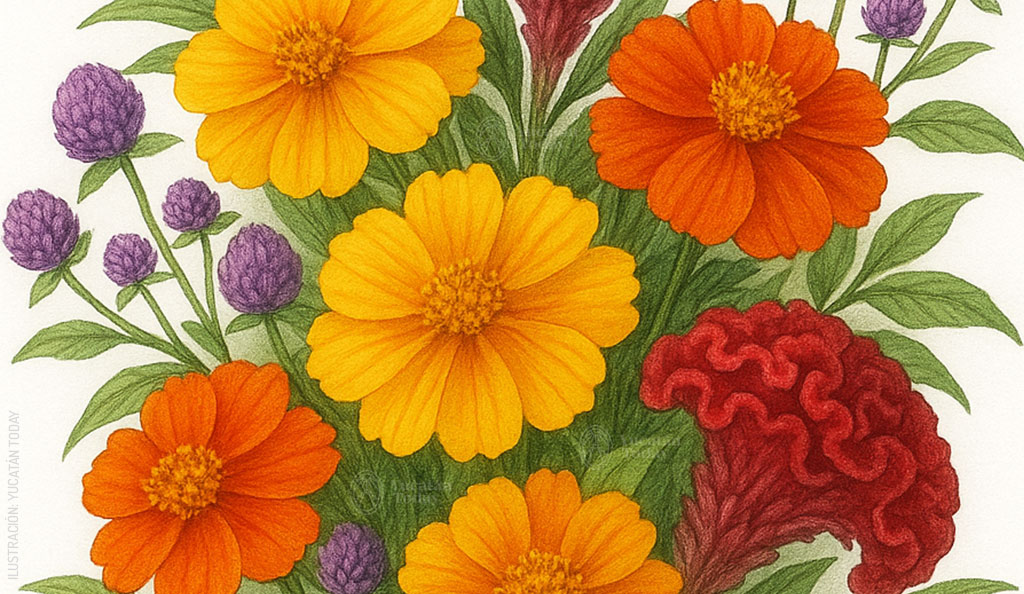
The Wildflowers of Yucatán: The Stars of the Day of the Dead
Wildflowers of Yucatán: protagonists on the Janal Pixan altars. Discover the flowers that give color to the Day of the Dead in the region and their...